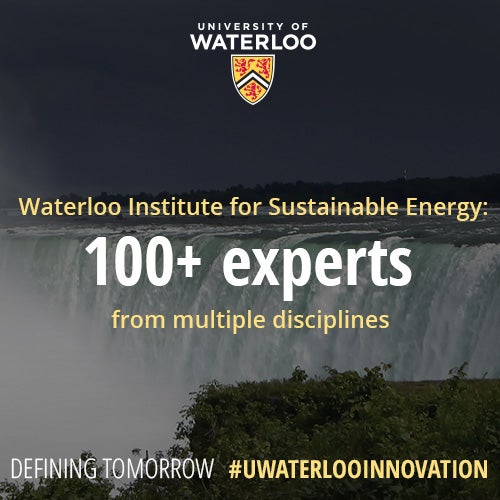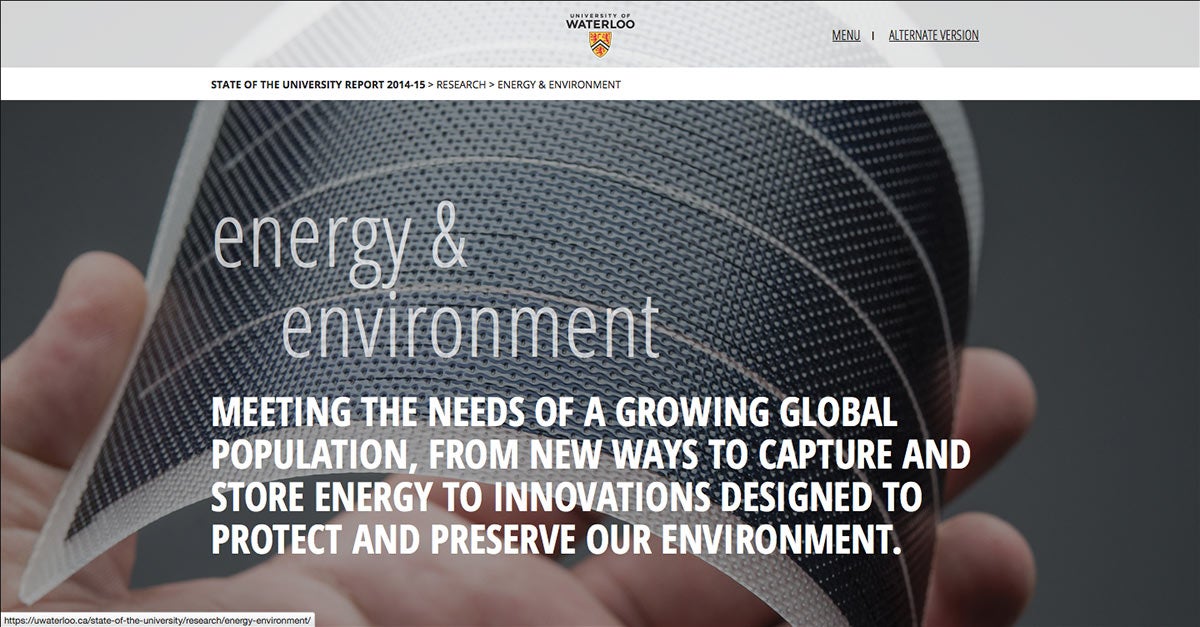

Meeting the needs of a growing global population, from new ways to capture and store energy to innovations designed to protect and preserve our environment.
Imagine solar panels no thicker than a postcard that will bring power to remote communities located beyond the grid. It’s just one example of the remarkable work underway at the Waterloo Institute for Sustainable Energy (WISE), where more than 100 researchers from multiple disciplines come together to help shape the long-term evolution of sustainable energy systems.
Where others saw “waste,” Owen Ward, professor emeritus in the Faculty of Science, and his team saw opportunity. Each year wastewater treatment plants in Canada and the U.S.A. end up with more than 10 million tonnes of biosolids — organic byproducts that, historically, were predominantly land applied without further treatment or sent to landfill. At the Microbial Biotechnology Laboratory in the Faculty of Science, the research team developed an approach that discards the baggage, such as pathogens, while retaining the nutrients, thus turning this raw resource into a Canadian Food Inspection Agency-registered fertilizer. Lystek was created to further develop and commercialize the technology.
Treated biosolids made into a Canadian Food Inspection Agency-registered fertilizer are applied beneath the surface of farm fields.
Minimizing utility bills and shrinking carbon footprints are central goals of the Energy Hub Management System project, involving Ian Rowlands, a professor of environment and resource studies in the Faculty of Environment. The project involves a small, in-home computer for family residences that indicates where electricity is being consumed and enables strategies to reduce consumption during peak demand periods.
From light bulbs that automatically adjust light and brightness depending on the time of day to a window spray that lets sunlight in during the day but illuminates a room at night, Canada Research Chair Pavle Radovanovic, a professor of chemistry in the Faculty of Science and member of WIN, is transforming lighting through nanotechnology.